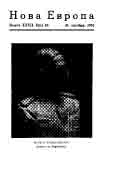
We kindly inform you that, as long as the subject affiliation of our 300.000+ articles is in progress, you might get unsufficient or no results on your third level or second level search. In this case, please broaden your search criteria.

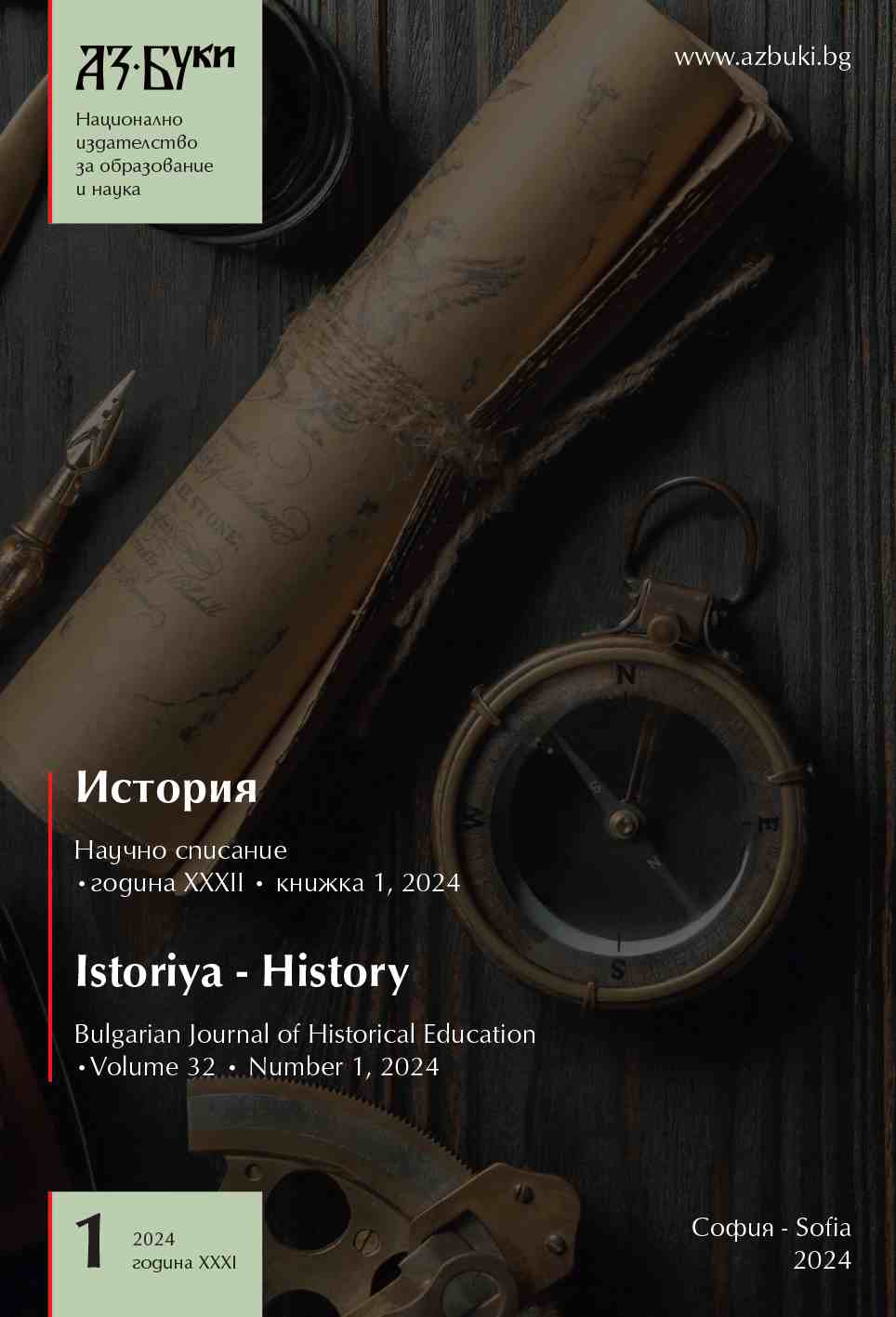
This study presents the background of cultural tourism in Bulgaria. There are a lot of definitions of tourism, but everywhere in the leading places is mentioned the cultural heritage. Cultural tourism became a global autonomy economy branch in the 1980s. In Bulgaria, in the middle of the 1950s, a growth of restoration, preservation, and presentation work began. The number of museums increased from 70 in 1949 to 233 in 1999. The peak of museum visitors was between 1976 and 1987, but statistical data are not reliable. The transition to a democratic society and market economy was the real start of cultural tourism in Bulgaria, established on the material base, institutions, and infrastructure constructed during the studied period. The applied data shows that the percent of museum non-budget incomes increased, but the system still needs reforms and investments.
More...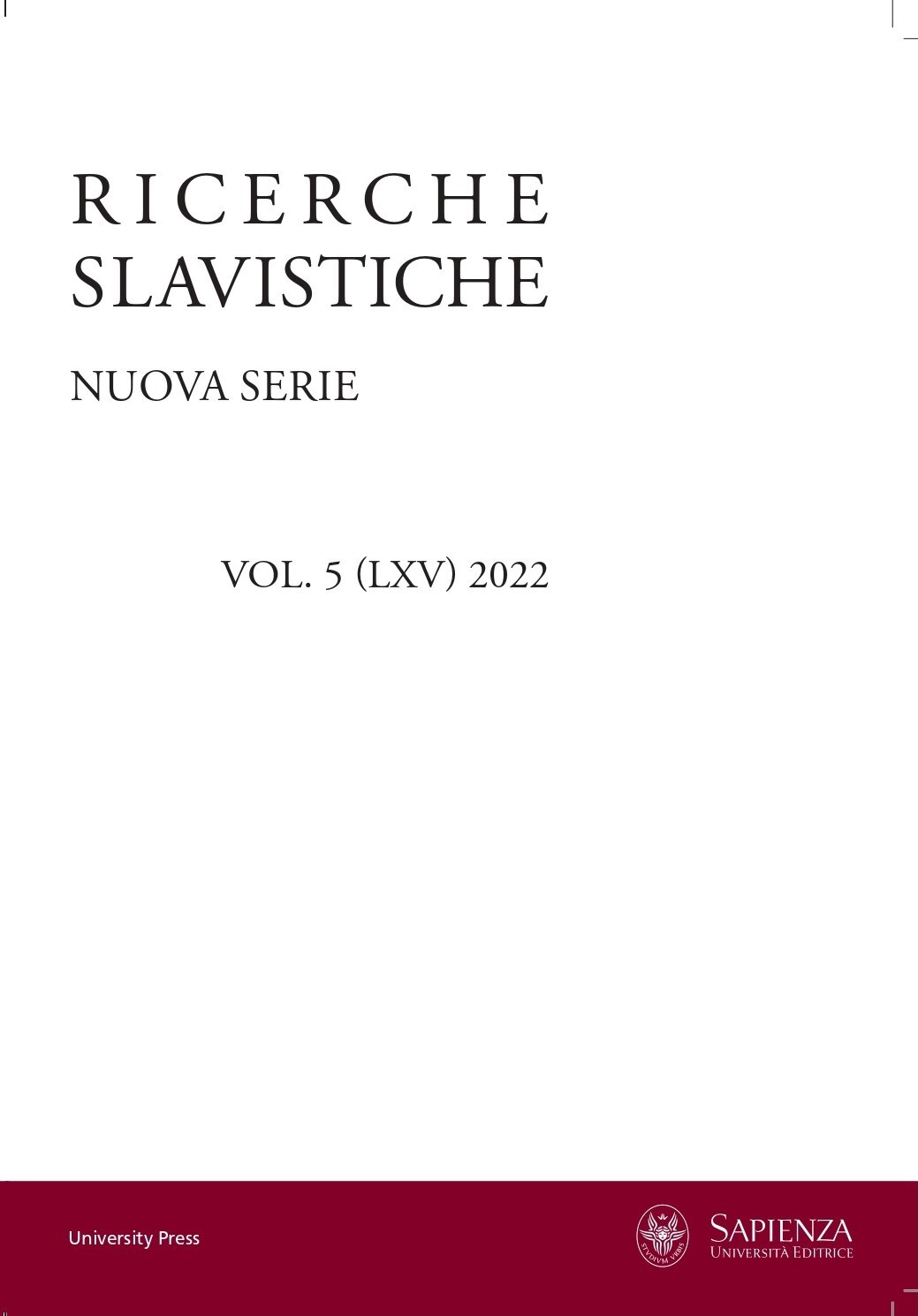
Examining the heritage of Bulgarian studies published in “Ricerche slavistiche” over seven decades, I focused on the reviews of Bulgarian studies in Italy written by two renowned scholars: Janja Jerkov and Giuseppe Dell’Agata. This approach makes it possible to reconstruct the main lines of development of both traditional themes and recent trends in Bulgaristic studies in Italy. The studies of the pre-war period are dominated by the activity of Enrico Damiani and Luigi Salvini, whose works were published with the purpose to discover the cultural heritage of the Bulgarian people to the Italian public, and therefore of spreading its history, its language and its culture. The journal “Ricerche slavistiche” was founded while the era of the fathers of Bulgarian studies was fading away. While the editors of a previous journal, “Bulgaria”, aspired to make Italians aware of the cultural beauties of the Bulgarian people, the new journal was conceived with a programmatic intention of separating scientific research from journalism and of bringing about a renewal of the Slavic sphere. In the review of studies published in “Ricerche slavistiche”, given the substantial variety of essays, to reconstruct the main lines of thematic development during Seventy years of history, any division of the bibliographic material by subject would have a rather conventional value. Hoping in an empirical utility, along the lines of the subdivision adopted by Dell’Agata, I propose a categorization of the studies: the medieval period is treated in the first paragraph, 1) paleobulgaristics, language and literature of the I and II Bulgarian Empire; the further paragraphs are: 2) the period from the 15th to the 18th century; the modern era 3) Neo-Bulgarian language; 4) modern literature; 5) varies; 6) Bulgarian-Italian scientific and cultural events. The most important studies of this period from a methodological point of view are due to Ivan Dujčev, Riccardo Picchio and Mario Capaldo. One of the major researchers of the modern Bulgarian language is Giuseppe Dell’Agata, whose linguistic studies marked a new phase for the era of popularisation and eclecticism of Bulgarian studies in the 1940s and 1950s. In Italy, the period between the two wars saw the development of a tradition of studies focused on the problems of Bulgarian literature and culture by the masters and pioneers of Bulgarian studies Damiani and Salvini. A recurring theme of particular interest to Italian scholars is emphasizing the work of the poet Penčo Slavejkov (1866-1912), considered “the founder” of Bulgarian literary modernism. Bulgarian-Italian cultural relations are part of an uninterrupted tradition of almost a century, anchored in the studies in Italy between the two wars, continued after World War II (by Picchio and Borriero), vital in the following decades (Dell’Agata) up to the present day (Jerkov, Marcialis, Stantchev, Garzaniti, Ziffer, Diddi). Concluding this review of seventy years of Bulgarian publications in “Ricerche slavistiche”, we observe, on the one hand, an evolution over time of study interests that change with the generations; on the other hand, the interdisciplinarity and interculturality and, more generally, novelty and originality of Italian Bulgarian studies.
More...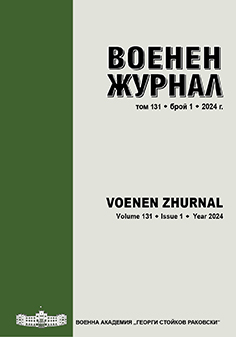
Abstract. This scholarly article examines the problems ahead of the effective control of strategic armaments that have arisen in the first decade after the end of the Cold War. The collapse of the USSR left huge nuclear arsenals on the territory of four newly independent states. The US and the Russian Federation faced the challenge not only to convince Ukraine, Belarus and Kazakhstan to voluntarily hand over to the Russian Federation the remaining nuclear weapons on their territory, but also to continue the complex negotiations between them to negotiate and ratify new treaties reducing their nuclear arsenals. In addition to the three planned START Treaties, the fate of the ABM Treaty become another contentious issue in the negotiations between the US and the Russian Federation. Despite these difficulties, strategic arms control became the least controversial aspect of NATO–Russia relations and one with the greatest potential for cooperation.
More...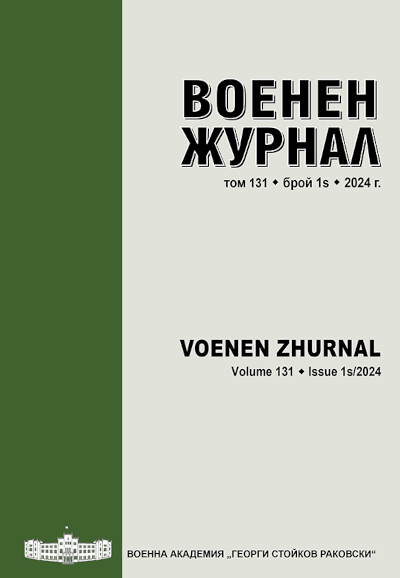
Fundamental historical-geographical and political-geographical categories and concepts with methodological interrelationships in the description of polemology are presented. Through a propositional-logical connection in historical geography and polemology, the modern significance of the nation-state in the theory of international security is examined.
More...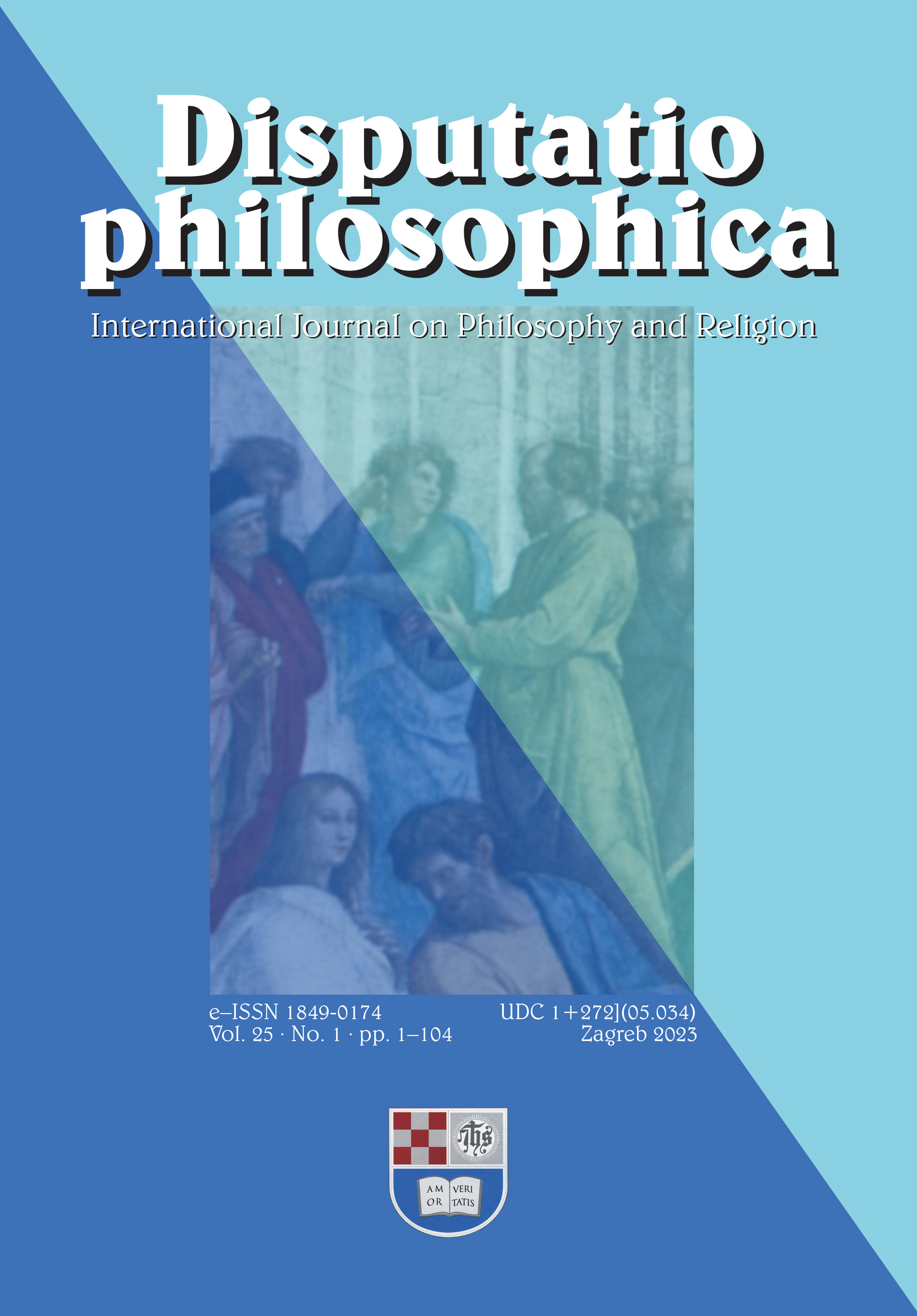
The centuries–old model of the Church as a community of lay people and clerics who inspire and guide them was entering a functional crisis. In the era of revolutions and liberalism, the laity found itself in a new, contradictory position: at the same time, they are believers loyal to the Church and citizens loyal to secular society. Looking for a way out of the crisis, the Church relied on the democratic capacity of the laity, who promoted Christian values with their social presence, but also fought for the Church’s political rights. The organized Catholic laity had a specific role: to form, culturally and morally, the lay classes. The prehistory of the creation of the Catholic lay movement (Catholic Action) gives insights into the complexity of societies in the second half of the 19th, and the beginning of the 20th century, but also the high level of inventiveness of both the laity and the hierarchy in activating the laity, which will turn out to be an epoch–making success of the Church of the 20th century.
More...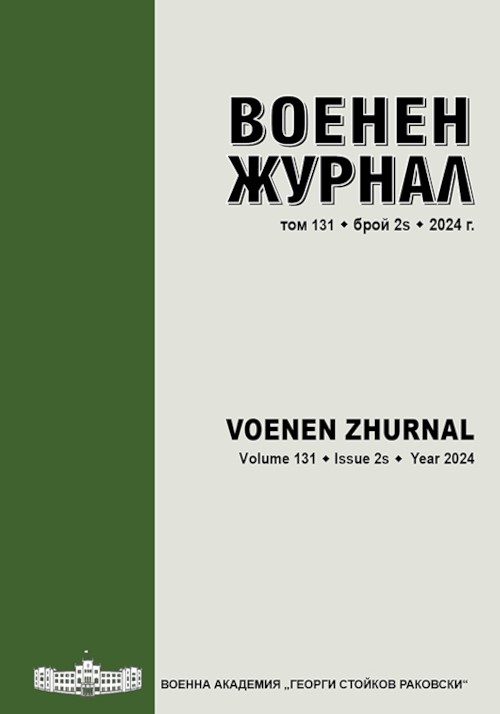
The topic of this scientific article examines the problems that arose before the effective control of conventional armed forces in the decades after the end of the Cold War. The Treaty on Conventional Armed Forces in Europe (CFE) is the keystone for the establishment of mutually acceptable restrictions on this category of armaments. Conceived as a treaty between two monolithic military-political blocs, the CFE has had to be adapted several times since the end of the Cold War and the new security environment that emerged in Europe after the collapse of the Warsaw Treaty Organization (WTO). However, the contradictions between NATO and Russia are the reason why the CFE was not able to reach its full potential. The escalation of the Russian aggression against Ukraine and the deep mutual mistrust between Moscow and the Western partners led to the Russian Federation’s decision to withdraw from the CFE Treaty.
More...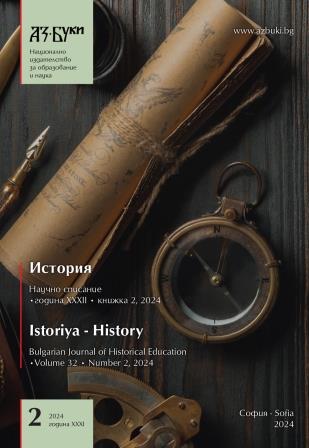
In the article, the subject of research and analysis is the situation and status of the Turkish and Albanian minorities in the Yugoslav Federation after the Second World War, with an emphasis on Kosovo and Macedonia and the Yugoslav policy towards them. Because of the conflict with Kominform in June 1948 and the deterioration of the Yugoslav-Albanian relationship, the Belgrade leadership was worried about the reaction of the Albanian population in Yugoslavia. At the same time, to limit the demographic and ethnic invasion of the Albanians in Kosovo and Macedonia, Yugoslav authorities started a political campaign for their exportation. After the signing of the Yugoslav-Turkish agreement in 1953, which confirmed the convention from 1938 for the exportation of Turks from Yugoslavia in Turkey, the emigration into Turkey not only of Turks, but also Albanians, was legalized. Albanians in the Yugoslav federation got the possibility to define themselves as “Turks”, and thus to immigrate to Turkey (not Albania). In that way, many Albanians in Yugoslavia, mainly from Kosovo and Macedonia, declared themselves as “Turks”. In those years, Belgrade decided to intensify and renew the idea of emigrating the Muslim population, such as the Turks and Albanians, after World War II.
More...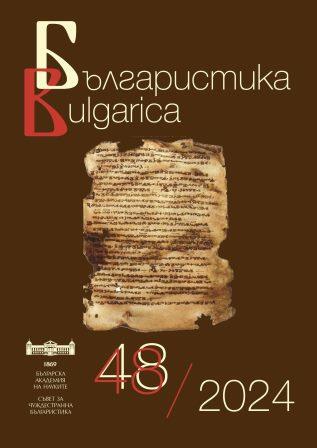

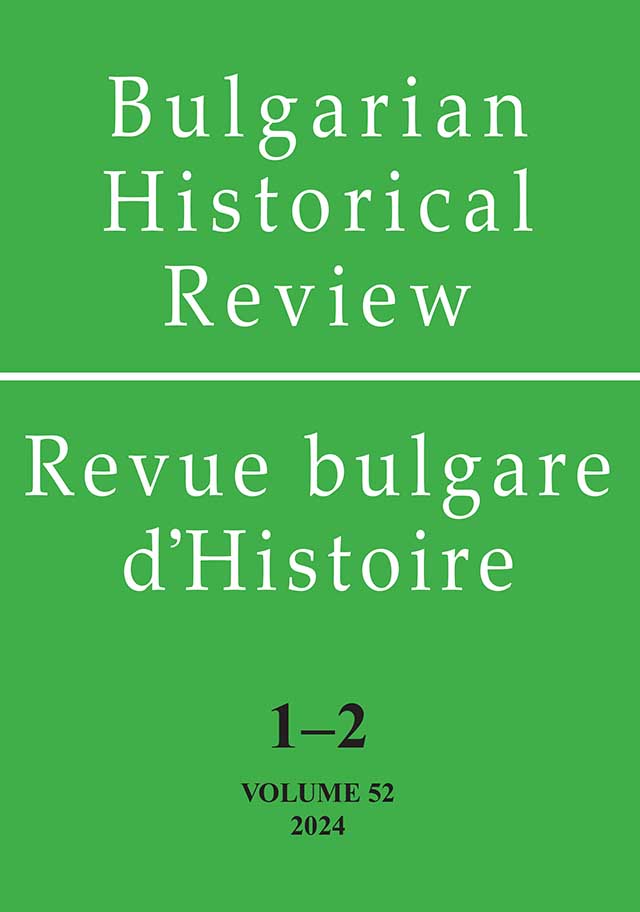
Bulgarians were among the 2,600 foreigners who took part in the South African War, also known as the Second Anglo-Boer War. Their presence helped to make this colonial conflict a matter of international importance. This paper is an attempt to consider the Bulgarian involvement within a context of the pro-Boer campaign in Bulgaria, using published sources of a Bulgarian and international origin and applying the biographical method. Bulgarians travelled to the Transvaal at their own risk and expense. Most of them had military experience and, evidently, expected to improve their combat skills in a modern war against a leading European army. Their sense of kinship with the Boers was evoked by a nationalist paradigm. Bulgarians tended to view the Boers as fellow agriculturalists whose way of life was being threatened by a stronger nation. Most Bulgarians believed that the British Empire, the adversary of the Boers, was to blame for the revision of the terms of the Treaty of San Stefano at the Congress of Berlin. Therefore, Bulgarians delighted in the British misfortunes in the South African War. This sentiment may explain why no volunteer from Bulgaria is known to have fought for the British in that war. Bulgarian volunteers, representing various social groups and occupations, took part in some of the major battles of the South African War. The involvement of these volunteers was an expression of the Bulgarian solidarity with the Boers. Investigating this phenomenon gives us a deeper understanding of the problems and aspirations of Bulgarians at the turn of the twentieth century.
More...
The research examines the development of the school military education system for reserve officers in the Bulgarian Armed Forces after the end of the Second World War until the end of the 20th century. The article is based on the collection, study, analysis, summarization and derivation of trends on the issue on foundation on the research of the historical material, find in the histories of military academies and schools in the country, supported by several archival sources and reports on the topic. The progress of the development process of mass armies throughout the world has been accompanied by the rapid expansion of the system of training officers for the active forces and those for the reserve component. Numerous military academies and training schools are opened, and the preparation from a centralized type is transformed into a decentralized one. The subsequent consolidation of the military academies and schools leads to a return to the leading role of the Reserve Officer Schools in the training of officers for the reserve. Later, a separate military unit is created, which is responsible for their teaching. Uniform and generally valid rules for all institutions preparing such personnel enter into force.
More...
Blagovest Njagulov, a prominent historian, dedicated his career to studying modern, contemporary, and comparative history, with a particular interest in ethnic policies and minorities. His doctoral thesis on Dobrudja marked the beginning of a brilliant career at the Bulgarian Academy of Sciences. His research shed light on underexplored aspects of the history of Bulgarians abroad, especially in Romanian Banat. He adeptly navigated diverse cultural and linguistic contexts, contributing to a rich and nuanced historiography. His work also illuminated the complex Bulgarian-Romanian relations, the issue of minorities, and the challenges of historical memory, particularly in the context of European integration. In addition to his academic endeavors, Njagulov was an engaged actor in civil society, supporting Bulgarian organizations abroad and actively participating in initiatives aimed at strengthening ties with Bulgarian communities worldwide. In this regard, this article also aligns with the recent renewal of reflection on the biographical method in Bulgarian historiography.
More...

The Stepford Wives, a novel by Ira Levin published in 1972, describes a micro-dystopian society, which imposes a strict ‘traditional’ order, by transforming women into compliant wives programmed to serve their husbands. The book has been adapted to screen several times. The present paper will focus on a comparison between the original literary work and the first adaptation of 1975 by British director Bryan Forbes, seen through the notions of genre, gender, class and race.
More...
Book review: Йоана Славчева. Румънският политически роман от 60-те и 70-те години на XX век. Велико Търново, УИ „Св. св. Кирил и Методий“, 2022, 187 с. [Joanna Slavcheva. The Romanian Political Novel of the 1960s and 1970s. Veliko Tarnovo, St. Cyril and St. Methodius University Press, 2022]
More...
Book review: Impact et réception de la culture française dans les Balkans (XIXe – XXe siècles). Textes réunis par Raïa Zaïmova. Académie bulgare des sciences – Institut d’études balkaniques & Centre de thracologie, 2023, ISBN : 978-619-7179-39-2 [Френската култура на Балканите (XIX – XX в.) – Взаимовръзки и рецепция. Съставител Рая Заимова. / French Culture in the Balkans (19th – 20th Centuries) – Relationships and Reception. Ed. : Raïa Zaïmova.
More...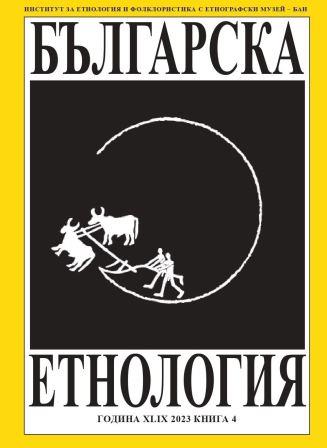
After the collapse of the Russian Empire at the end of the First World War and the accession of Bessarabia to the Kingdom of Romania, a large Bulgarian population found itself within the borders of this country. The census of the population in the Kingdom held on December 29, 1930 allows to trace certain aspects of the demographic development of the Bulgarians in Bessarabia. This article focuses on the quantitative growth of the Bulgarian population, the territorial distribution of Bulgarian communities and the level of urbanization of the Bulgarians.
More...
This text presents the women’s clothes of the Bulgarians in the settlements of Korten and Tvarditsa in Moldova in the period between the end of the 19th and the beginning of the 20th century. Two museum collections from the museums in the village of Korten and the town of Tvarditsa in Moldova are analyzed. In this study, the author seeks to answer the question of what did the Bulgarian women dress at that time and how did they do it. The reconstruction and interpretation of the data include the form, the structure and the terminology of clothing, as well as its constituent parts. The comparative-historical and systemic-structural analysis is applied, which allow to clearly reconstruct the idea of clothing of women from the Bulgarian settlements of Korten and Tvardica in Moldova on the boundary between the two centuries.Bulgarian women’s clothes in the settlements of Korten and Tvarditsa in Moldova
More...
In my previous announcements and publications, I have already paid attention to the expedition of the famous Bulgarian folklorist Rayna Katsarova in Dobrudza in the summer of 1944. The expedition is more deeply analysed in this article, the particular occasion being that after the finding of the file with the report by Rayna Katsarova about this travelling, I was happy to find her fieldwork records done in several living settings in Northeast Bulgaria: Balchik, Lyulyakovo, Dobrevo, etc. Their data is preserved in the Musical Folklore Archive of the Institute of Art Studies at the Bulgarian Academy of Sciences. A specific focus of Rayna Katsarova’s expedition in Dobrudza is the Bulgarian newcomers from Tavria (region which at that time was situated in the Ukrainian SSR), who bear specific vernacular, traditions and folklore. Our big folklorist did not know at the time being that just in several months they would leave their metropolis. In about 2000 Tavrian Bulgarians were deported back to the USSR. In their turn, the Tavrian Bulgarians in Dobrudza did not know that the meetings with a scholar like Rayna Katsarova were a unique chance to leave to the next generation a record of a small part of their cultural memory, rites and musical folklore as a document for the development of their culture and ethnic identity in the conditions of the Second World War.
More...